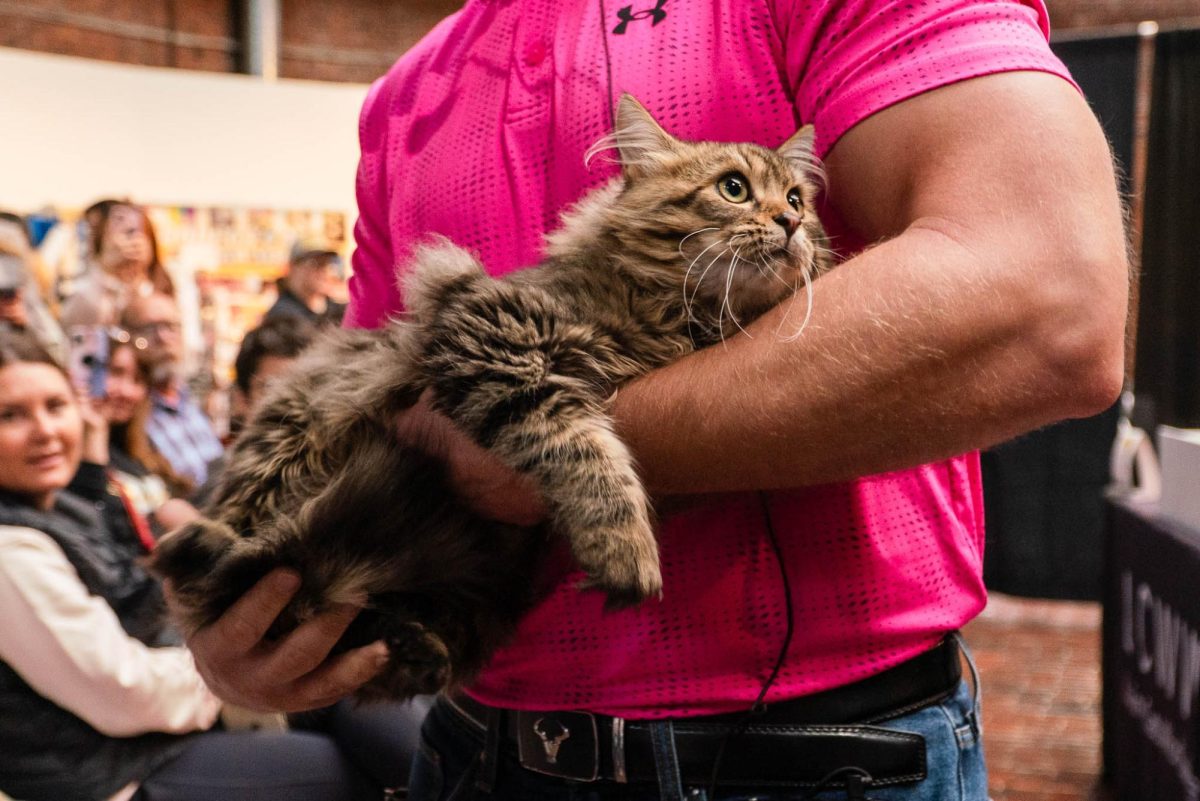Northeastern Public Health Advocacy Institute initiates lawsuit against Juul
Photo courtesy Vaping360, Creative Commons
Knopf said studies show use of e-cigarettes primes the brain for further addiction.
May 10, 2019
The Northeastern Public Health Advocacy Institute, or PHAI, initiated a class action lawsuit last week against Juul Labs Inc., an e-cigarette company popular with college students.
PHAI is a legal research center focused on public health law. Their goal is to “support and enhance a commitment to public health in individuals and institutes who shape public policy through law,” as written on their website.
PHAI’s five-page letter addressed to President and CEO of Juul Labs Kevin Burns alleged that Juul Labs has committed “unfair and deceptive acts and practices,” including selling products “in a defective condition” and marketing products to teenagers.
Juul-93A-pub
In an April 29 press release, PHAI further requested the company fund a “statewide clinical program for the treatment of nicotine addiction in young people who used Juul e-cigarettes.” The institute alleged that despite the 21 and over age requirement to purchase a Juul, the products are designed to cater to younger consumers.
When asked for comment, a Juul Labs spokesperson wrote in a May 9 email to The News, “JUUL Labs is committed to eliminating combustible cigarettes, the number one cause of preventable death in the world. Our product is intended to be a viable alternative for current adult smokers only. We do not want non-nicotine users, especially youth, to ever try our product. To this end, we have launched an aggressive action plan to combat underage use as it is antithetical to our mission. To the extent these cases allege otherwise, they are without merit and we will defend our mission throughout this process.”
Ilana Knopf, director of the Public Health and Tobacco Policy Center — a mostly-independent center under the umbrella of PHAI that helps local communities in New York implement socially beneficial public health policies — said young people are using e-cigarette products at “epidemic” proportions.
“Nicotine is not benign, and it is harmful to the developing brain,” Knopf said.
She also said studies have shown frequent and prolonged use of e-cigarettes leading to other addictions.
“It’s really priming the brain for addiction. As we become addicted to one substance, the brain is then primed for addiction more generally,” Knopf said.
Richard Daynard, a Northeastern distinguished professor of law and the president of PHAI, said Juul products are marketed to adolescents through social media advertisements that omit warnings of potential health risks.
“Juul at this point is claiming that they didn’t mean to addict children,” Danyard said. “But they’ve created a humongous epidemic of nicotine-addicted young people, and it’s their responsibility to get them unaddicted.”
Daynard said he believes the lawsuit is unique because it is direct in an unprecedented way.
“I think the lawsuit is particularly compelling as an idea, as a legal claim, because it goes directly to the problem … We are simply demanding that the company change its behavior in a way that will directly help young people to quit Juuling,” Daynard said.
Varun Thakkar, a first-year computer science major, said he supports the lawsuit. Thakkar has used Juul products for a little over a year. He said he used to go through a pod — a replaceable cartridge containing the same amount of nicotine as 20 cigarettes — in just one day, but has lessened his usage to a pod every three or four days.
“Honestly, I’m kind of for it because I also want to quit,” Thakkar said. “I feel like it’s not benefiting me or anyone else who does it in any way. I think the only good reason to use a Juul is as an alternative to cigarettes.”
However, Thakkar said he does not believe Juul targets adolescents and believes the popularity of Juuls among college students is just a trend.
“I think for me it was seeing other people doing it and thinking, ‘Okay, this is the cool thing to do now,’” he said. “It’s like free clout.”
As for the lawsuit, Daynard said if Juul does not provide an adequate response, PHAI will file the lawsuit and seek an order from a judge requiring Juul to establish the proposed treatment program.
“We’re gonna see if we can do something that will spread the word to the rest of the country to try and coordinate strategies that go beyond Massachusetts,” Daynard said.







